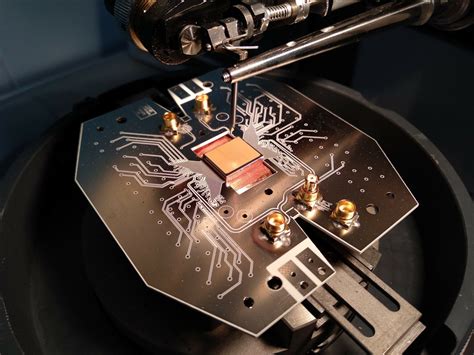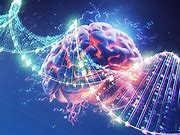KAIST recently made a groundbreaking announcement about a remarkable achievement in the field of semiconductor technology. Professor Shinhyun Choi and Professor Young-Gyu Yoon from the School of Electrical Engineering have collaborated on developing an ultra-small computing chip that possesses incredible self-learning and error-correcting capabilities.
Imagine a tiny chip that not only performs tasks but also learns from its mistakes, just like humans do. This innovative neuromorphic semiconductor-based chip has the extraordinary ability to recognize and rectify errors caused by non-ideal characteristics, a challenge that had plagued existing neuromorphic devices.
“This system is like a smart workspace where everything is within arm’s reach instead of having to go back and forth between desks and file cabinets,”
When processing complex operations such as video streams, this advanced chip autonomously distinguishes moving objects from static backgrounds, continuously improving its performance over time. The team’s research showcased exceptional results in real-time image processing, achieving accuracy levels comparable to ideal computer simulations.
At the core of this groundbreaking innovation lies a cutting-edge semiconductor device known as a memristor. By harnessing the variable resistance properties of memristors, akin to neural synapses in our brains, this chip can seamlessly integrate data storage and computation processes simultaneously. This breakthrough paves the way for more efficient and reliable computing systems inspired by human brain functionality.
“This is similar to the way our brain processes information, where everything is processed efficiently at once at one spot.”
The development of the world’s first memristor-based integrated system opens up new horizons for adaptive technologies capable of responding dynamically to environmental changes. Unlike traditional technologies burdened by complex compensation mechanisms, this innovative system excels at self-learning and adaptation on-the-fly.
By successfully demonstrating real-time learning and inference capabilities through their integrated system, KAIST’s research team has illuminated the path towards commercializing next-generation neuromorphic semiconductor technologies. These advancements will reshape how artificial intelligence powers everyday devices, enabling faster processing speeds without relying heavily on external cloud servers.
The implications are vast – imagine smartphones that process AI tasks locally with enhanced privacy protections or energy-efficient smart appliances that adapt intelligently to user preferences in real-time. Such innovations promise not just technological advancement but also practical benefits for individuals worldwide.
The collaborative efforts between researchers Hakcheon Jeong and Seungjae Han have culminated in an article published in Nature Electronics on January 8, 2025 – marking a significant milestone in advancing intelligent semiconductor technologies. Supported by prestigious research projects focused on semiconductor development led by institutions like the National Research Foundation of Korea and the Electronics and Telecommunications Research Institute, this study underscores South Korea’s commitment to driving innovation in cutting-edge technology domains.
In essence, this transformative chip represents a glimpse into an exciting future where machines can learn from experience autonomously – ushering in an era of smarter, more adaptable artificial intelligence solutions embedded within our daily lives.









Leave feedback about this